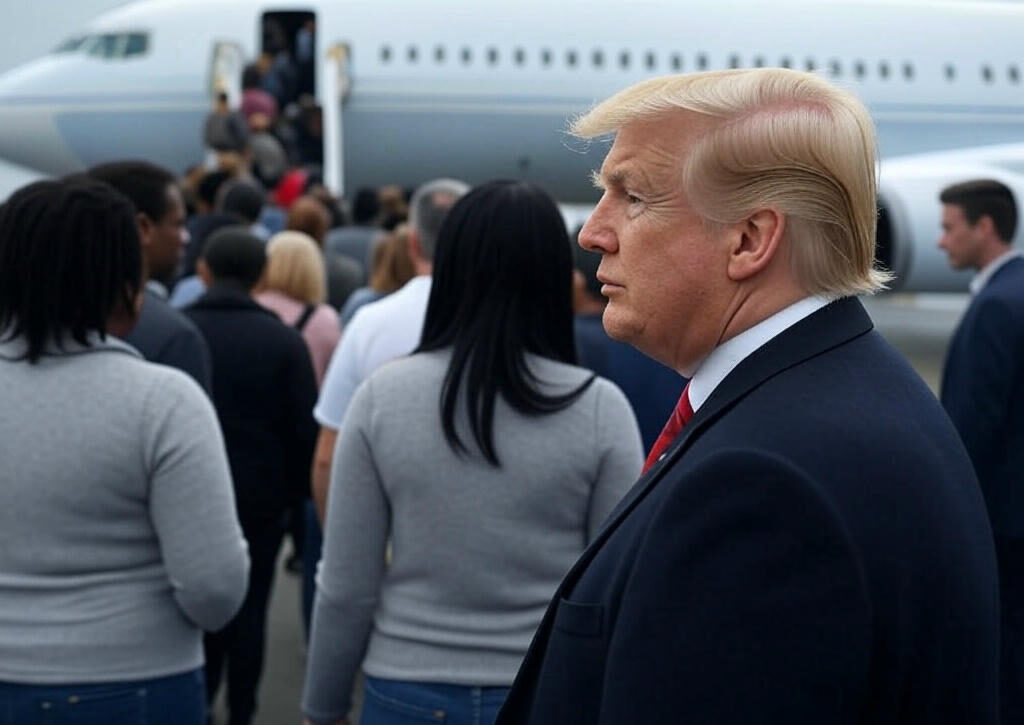Trump Proposes $1,000 Incentive for Migrants to Voluntarily Leave the U.S.

Former President Donald Trump has made the audacious and divisive proposal to reward migrants $1,000 each in exchange for their voluntary return to their home nations, a scheme he calls “self-deportation with dignity.” As Trump seeks to garner support ahead of the 2024 presidential race, the idea, which was just presented at a campaign address, is a component of his larger immigration program. Trump claims that the plan will help ease the burden on immigration facilities, lower long-term government expenses, and give undocumented migrants who might not be eligible for asylum or permanent residency an “orderly and humane” alternative.
At the gathering, Trump declared, “We’re going to give people an opportunity—$1,000 if they agree to go home on their own.” ” It benefits all parties and is less expensive for taxpayers.” There have been strong responses to the plan from both major parties. As record numbers of migrants arrive at the southern border, proponents contend the proposal is a practical way to address the overburdened immigration system. However, detractors refer to it as a “public relations stunt” that ignores the underlying issues that lead to migration, such as political instability, poverty, and violence in the countries of origin of migrants.
Additionally, immigration activists caution that providing money in exchange for departure could take advantage of weaker individuals who would feel under pressure to accept the money, even if they have valid asylum claims. According to some, the approach may lead to misunderstandings and legal issues regarding forced vs. voluntary deportations.
Similar incentive-based schemes have been implemented in other nations in the past, with varying degrees of success. For instance, although participation rates were typically low, countries such as Germany and Australia have occasionally provided financial aid to migrants who choose to return home.
How Trump would finance or carry out the plan if elected is still unknown. The plan is not yet included in any formal legislation, and if it were to be implemented, it would probably encounter several logistical and legal challenges.
Nonetheless, Trump’s continued emphasis on immigration, which has been a pillar of his political platform since the 2016 campaign, is reflected in the announcement. Even though the strategies Trump suggests are controversial, his pledge to “restore control” appeals to many conservative supporters as the border crisis continues to dominate news reports.
What Happens Next?
Immigration is predicted to continue to be a major topic as the 2024 election season intensifies. Trump’s “$1,000 self-deportation” proposal has already rekindled discussions about how the United States should handle undocumented migration and what incentives, if any, are acceptable in determining immigration policy, regardless of whether it becomes popular.

